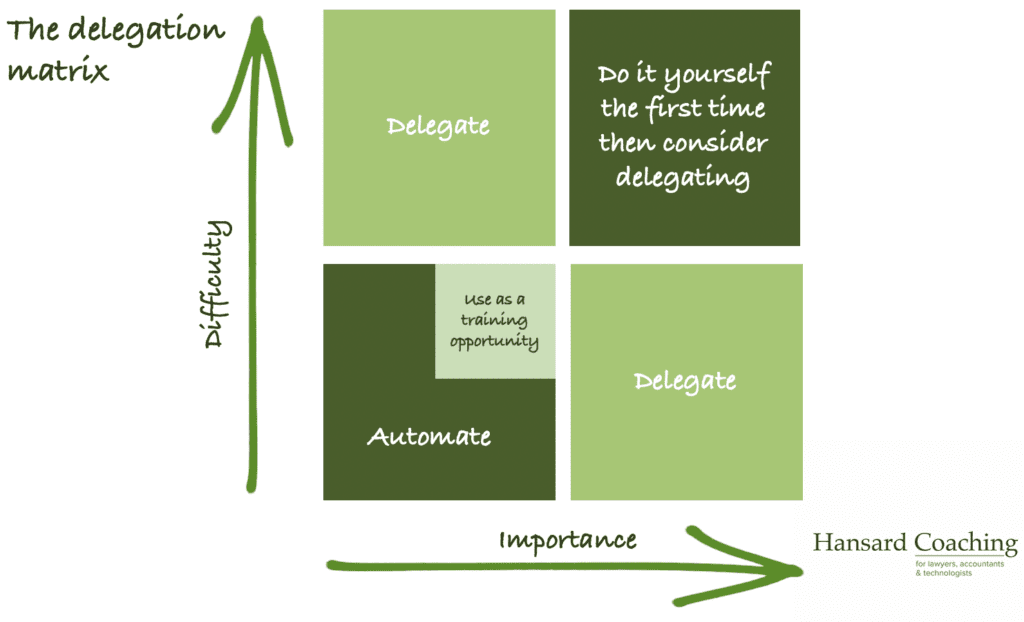
The when and how of delegation
One of the benefits of working with so many talented individuals in the coaching room is that I am able to support great minds solving similar problems. One of these is when and how to delegate.
Our old friend the Boston matrix has helped create an approach to delegation (see diagram), using the axes of difficulty vs. importance to determine if and when a task should be delegated.
Anything that is neither difficult or important should really be automated. Alternatively, it could be used as an opportunity to train someone coming through the business.
It’s only really something that is both important and difficult that a senior executive should be doing and, thereafter, once the task or problem has been solved or a framework created, it should be delegated. The same should be the case for most other tasks.

As a consequence, the most experienced minds are then left to solve the most difficult and important challenges; right person, right task; right time.
Then the question arises as to how we should delegate; a very personal challenge. It’s a skill that takes time to develop, and new managers can find it really difficult, particularly at the inflection point when they move from being an individual contributor to managing a team for the first time.
One approach is to delegate a task using an existing framework, such as a project plan or an existing format. Give the individual you are working with scope to operate within that framework and check-in regularly. Overtime, the need to oversee will reduce and scope to operate outside the framework can be given.
I would also encourage delegation to start with small steps. By testing what can be delegated and who you delegate to, you can learn and hone your skills from seeing how they get on with particular tasks. Once you are comfortable as to the capability of your team members, then delegating should be the norm, obviously with regular and appropriate reporting.
Delegating well is a real skill, and at first can feel daunting. However, design your own “when and how” model and you can succeed through others more and free yourself up to focus on those really important, high value tasks that will drive your business and your career forward.
